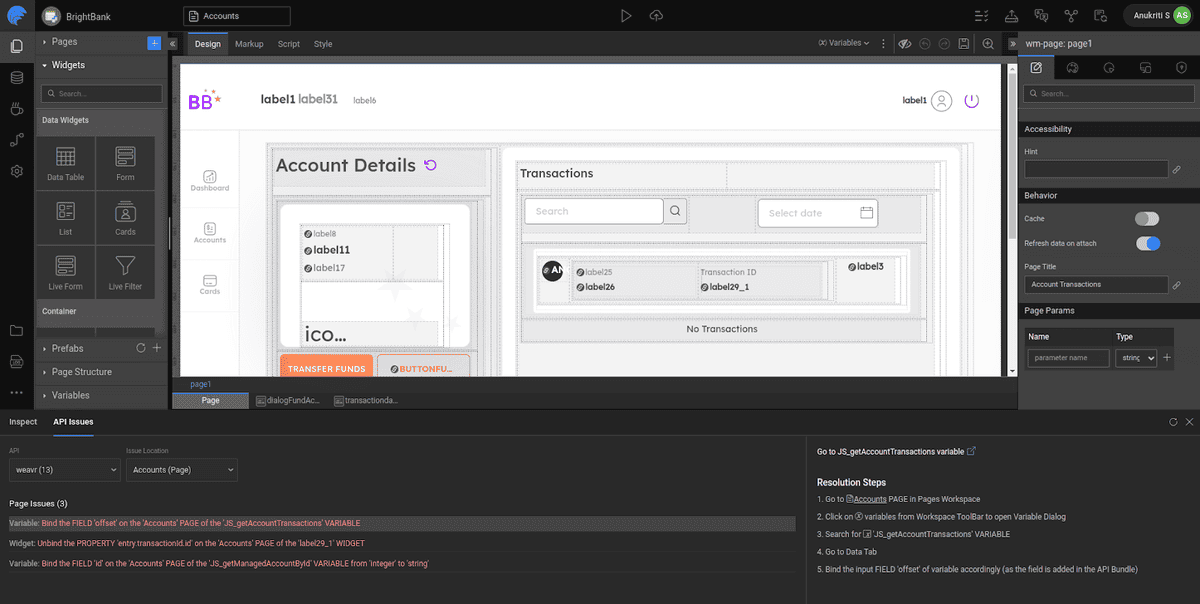Authored by Deepika Srimanthula - Senior Engineering Manager, WaveMaker, Inc.
As developers, we frequently face major hurdles when incorporating updated versions of external services such as APIs, databases, web services, and other tools into our applications. When utilizing the LCNC platform for application development, we anticipate seamless integration to facilitate a smooth development process.
Meet Anukriti, a seasoned developer tasked with maintaining a critical application heavily relying on an external API service. As Anukriti diligently worked to enhance the application's features, news arrived that the API service would undergo a major version update. This update brought excitement for new possibilities and apprehension about potential disruptions to the application's functionality.
The challenges faced by Anukriti were multifaceted
Dependency Mapping: Understanding the intricate dependencies between the current API version and the application's codebase was a daunting task. Any oversight could lead to compatibility issues and operational setbacks.
Risk Mitigation: Ensuring a smooth transition to the new API version while mitigating risks such as breaking changes and unexpected behavior. However, manual analysis and adjustments were time-consuming and error-prone.
Testing Complexity: Comprehensive testing across all affected modules to validate compatibility with the new API version was essential. Yet, the sheer complexity of the application made thorough testing a significant challenge.

By using the API re-import impact analysis feature offered by WaveMaker, Anukriti was able to tackle these challenges with confidence and efficiency.
Dependency Analysis: The feature automatically analyses the application's codebase, mapping out dependencies on the current API version. This comprehensive overview enabled Anukriti to identify potential impacted areas and prioritize resolutions accordingly.
Automated Risk Assessment: Leveraging advanced algorithms, the feature conducted automated risk assessments, highlighting several issues and areas where conflicts or breaking changes were likely to occur. This proactive approach allowed Anukriti to address issues before they manifested in the application codebase.
As Anukriti navigated the API version update using the API re-import impact analysis feature, the benefits became evident.
In conclusion, the API re-import impact analysis feature emerged as a game-changer in API version management. Through automation, proactive risk mitigation, and seamless integration with existing development workflows, this feature has empowered developers like Anukriti to embrace API evolution with agility and precision. As a result it has supported innovation driving innovation and resilience in their applications. This is in stark contrast to traditional update methods, which often require manual interventions, version control challenges, testing complexities, and potential downtime, hindering developer’s ability to adapt quickly and maintain platform reliability.
Read more insights on app development, technology, and WaveMaker on our blog.